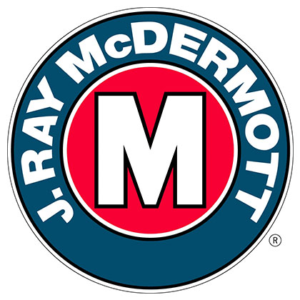
It was January 15, 1976. I was ten years old in the fourth grade, and we had just begun celebrating the nation’s Bicentennial. Twenty-six year old Joe Hooper woke up that morning and headed out to apply for what he hoped would be a life-changing job. By sundown, Joe’s wife was a widow, and his two young children had no father.
In an epic labor union dispute (not between a union and employer, but two unions) a small group of AFL-CIO members drove a bulldozer through the gate of the Jupiter Chemicals plant in Westlake, La. and fired shotguns and rifles into the temporary building that served as the hiring hall for the American Federation of Unions, Local 102. The temporary building was literally destroyed by gunfire. Inside the building, five people were injured and one, Joe Hooper, suffered a single shot to the chest that was fatal.
I remember the incident well, not only because it hit the news waves as hot as the slowly fading Watergate scandal, but also because it was an almost daily topic of conversation between my father, his brother, and their father, my grandfather. As railroad workers for forty years, each of them were active members in the United Transportation Union and provided rail services to the location where the incident took place. In the end, sixteen people were indicted for the “Jupiter Incident,” and one of those was a relative by marriage to a member of my extended family.

The Jupiter Incident literally gave birth to the Louisiana Association of Business and Industry (LABI) and the passage of “right to work” laws in Louisiana. I’m not gonna deny that the history of labor unions is riddled with corruption, but just as we do in government and big business, we learn, we do better, and we pass laws to prevent it. There is no denying that labor unions grow the middle class and create a strong economy. After the Jupiter Incident in 1976, a major shift in power came about where unions were weakened and business/industry became the dominant force in politics. In January 2018, The Bayou Brief published a story that touches on this topic.

In February 2019, a class action suit on behalf of 150 employees was filed against McDermott International and Chiyoda International (Tokyo), the Engineering, Procurement, and Construction (EPC) companies tasked with leading the construction of the Cameron LNG facility. The lawsuit alleges violations of the Fair Labor Standards Act. The plaintiffs assert that in addition to implementing a carpool requirement, the company mandates that employees utilize the company transportation to and from work. They are required to report to one of several bus locations, and clock in upon arrival. The rides from bus pickup to the job site range from 30 minutes to an hour. The employees are not paid for their time on the bus, and if the bus is missed, you miss the day of work. If four people carpool and traffic causes them to miss the bus, four people miss the day of work. In some cases, locals who live fairly close to the facility, are forced to drive away from the job site to a bus pickup that is farther from home than the job. The job requires ten hour shifts. In most cases, employees leave home before anyone is awake, drive an hour to catch the bus, and return after everyone is asleep. You can read more about the lawsuit at ClassAction.org, and they provide a link to the actual court filing.

McDermott’s project at Cameron LNG is nearing completion, and within weeks, the fourth LNG facility in the region will be construction. There are plans for eight. The EPC for the Driftwood LNG project is Bechtel Oil, Gas, and Chemicals, Inc. The logistics for all of these projects will be the same. It isn’t a stretch to expect that other job sites will follow the same practices. By now, you’re probably wondering what’s the connection between the Jupiter Incident and the LNG boom? The connection is LABI. It is LABI that pushes the pro business agenda in Baton Rouge. It is LABI that our legislators fall prey to when they are financially backed to push pro-business legislation. Do not ever make the assumption that the pro-business lobby adheres to and supports a conservative agenda. It does not. A conservative supports legislation that allows business to thrive through small government, less regulation and lower taxes; by lower taxes, I mean for both business and individuals. The pro-business lobby only cares about less regulation and lower taxes for business. They don’t give a flip about individual taxes. This is why they support ITEP exemptions and oppose additional property taxes. They also support sales taxes to cover up the shortfalls created by ITEP.
So, here are the very broad questions to which I was seeking answers. 1.) What exactly is the return to Louisiana for granting ITEP exemptions to manufacturing facilities? 2.) Why do these EPC’s insist on giving these jobs to Texas workers? Here’s what I’ve found.
- ITEP Exemptions: The investor facility applies and receives a property tax exemption that deprives local governments of revenue and adds to the company’s bottom line by reducing expenses. No benefit to Louisiana.
- EPC Hiring Practices: The upper-level, mid-level, and supervisory jobs go to friends and family from the Houston area. The skilled labor force is mixed between locals and out-of-stater workers with the latter being the majority of the workers. Using employees that have a history with the company reduces turnover. Adds to the bottom line. No benefit to Louisiana.
- State Income Tax: Construction workers from Texas are not residents and do not pay income tax to the State of Louisiana. No benefit to Louisiana.
- Payroll Rebate Program: The companies receiving payroll rebates are paying workers who live in Texas and send their checks to Texas. Adds to the company’s bottom line. No benefit to Louisiana.
- Sales Tax Revenue: Whether living in an RV park and catching a bus, or driving from out of state to catch a bus, lunches are provided on the jobsite, and workers have relatively little opportunity to spend money outside of work. Their checks go home. No benefit to Louisiana.
- Mandated Company Transportation: The EPC’s are working on “cost-plus” contracts with the investors. When they own the buses, force workers to use them, don’t pay them for their time on the bus, and charge the expense to the contract with a markup, it adds to the bottom line. No benefit to Louisiana.
In the first half of 2018, McDermott International reported an increase of $35M in revenue over the previous year, but Chiyoda International posted a $900M loss for the same time period citing increased and unexpected labor costs, and a shortage of local skilled labor at the Cameron LNG project.

